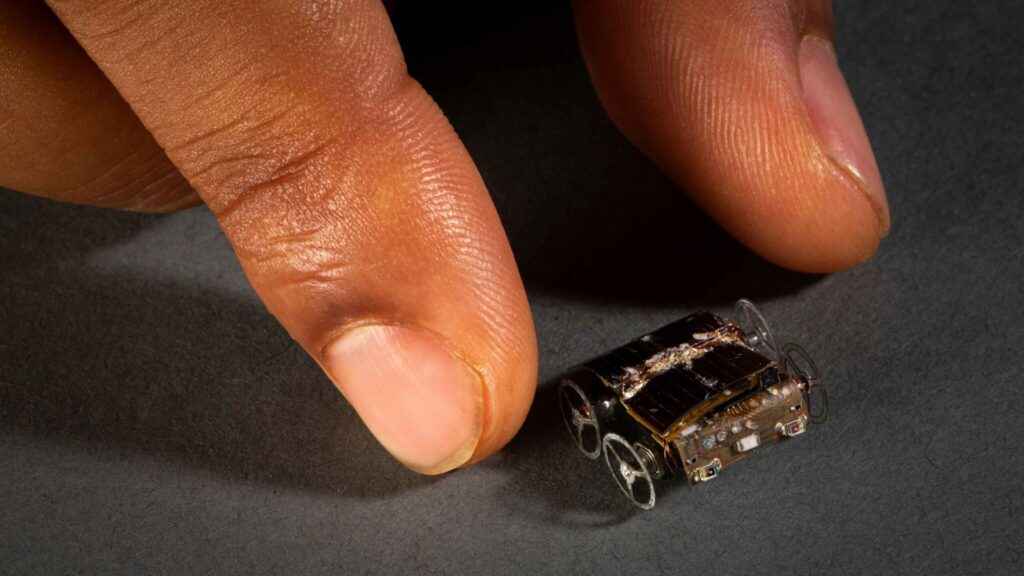Inspenet, October 9, 2023.
A small but impressive robot has been developed by a group of scientists from the University of Washington. It is known as MilliMobile, it has a size similar to that of a coin and a weight equivalent to that of a raisin. The highlight of this device is its ability to operate autonomously, taking advantage of the light and radio waves present in its environment.
MilliMobile is distinguished by being an autonomous robot with energy harvesting capabilities, allowing it to move at a speed of approximately 10 meters per hour. In addition, it is equipped with four wheels that facilitate its movement on various surfaces.
This small machine has notable features, as it combines agility with the ability to move on various surfaces, such as concrete or compact floors. The most surprising thing is its ability to carry loads that can be up to three times its own weight.

This is how the MilliMobile robot works
The robot uses a light sensor to make automatic movements towards light sources and its operation is practically unlimited, since it takes advantage of the previously collected energy . This approach is based on intermittent computing, allowing the device to operate gradually, making use of the energy available in its environment.
Regarding its movement, it is important to highlight that it does so in discrete increments, using small impulses of energy to turn its wheels. It has been tested in various conditions, both indoors and outdoors, including environments such as parks and even an office. Also in low lighting situations it can move without problems.
Thanks to this capability, MilliMobile can operate virtually continuously, performing tasks that other sensors might miss. In addition, it has been programmed to use its light sensors to direct itself towards a light source, allowing it to avoid obstacles effectively.
In addition to its agility, this robot is ideal for taking samples at various points in space, which helps create a more detailed representation of the environment. This achievement is possible thanks to the fact that researchers have equipped it with light sensors and Bluetooth connectivity, which enables data transmission at distances of more than 200 meters.
In future versions of the robot, it is planned to incorporate more sensors and improve the ability to exchange data between multiple units.
Source: https://computerhoy.com/tecnologia/crean-robots-Funn-ondas-luz-radio-1313144

